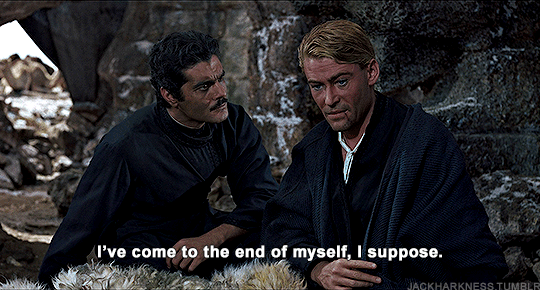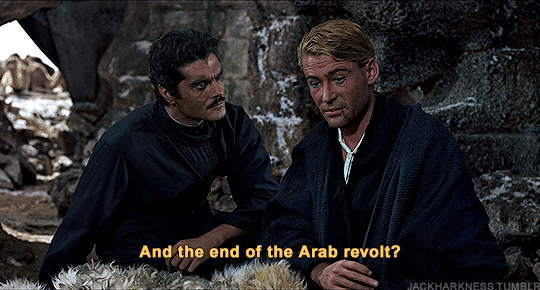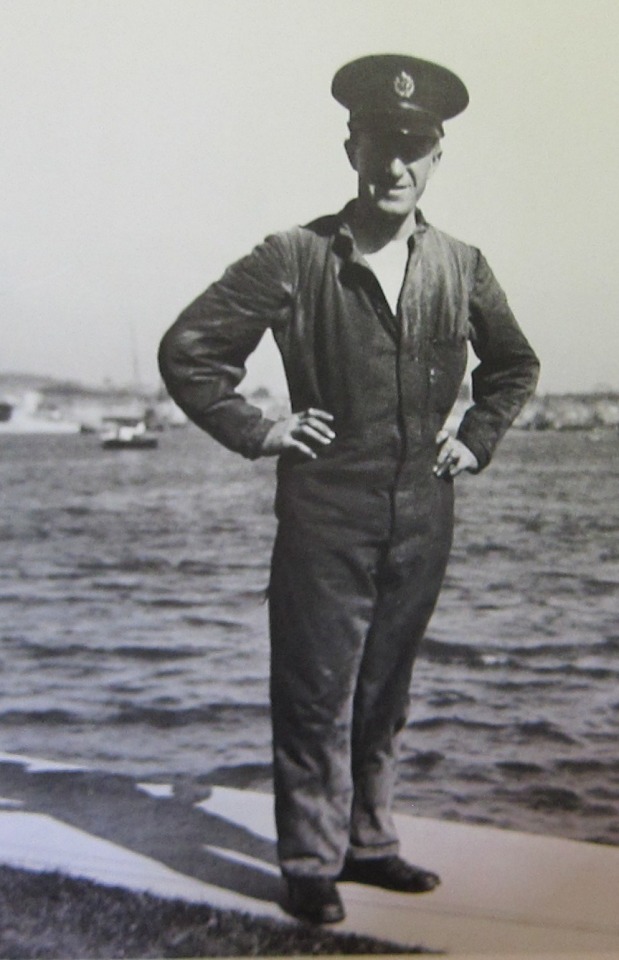Text
Not TE Lawrence related, but another history project of mine.
On my lunch breaks at work this week, I wrote a micro-ttrpg using the 24XX system about political intrigue in the final days of the Roman Republic!
It's free!
Send feedback!
2 notes
·
View notes
Text
stereotypes about people “really interested in WWI” are wildly different than stereotypes about people “really interested in WWII”
44K notes
·
View notes
Photo



A man can be whatever he wants, you said.
LAWRENCE OF ARABIA (1962)
476 notes
·
View notes
Text
Fellas, is it gay for men to "slake each other's needs"? "Quivering in the desert sun, virile, with hot intimate limbs in supreme embrace"....
[Lawrence loses his train (no pun intended) of thought]
17 notes
·
View notes
Text

it is here the uquiz which lawrence you are
also this is entirely not to take seriously! xD
53 notes
·
View notes
Text
"A white-headed figure checked us for a moment, but he never stirred, and so we judged him a kilometre post."
A deliriously sleepy Lawrence, outside Shedia in Chapter LXXII
4 notes
·
View notes
Text

Seated, left to right: Auda ibn Zaal, Mohammed abu Tayi, unnamed, Auda abu Tayi and Zaal ibn Motlog, possibly at Amman. Photo credited to TE Lawrence. (X)
The famous Bedouin chiefs that Feisal and Lawrence sought to negotiate with in preparation for the march on Aqaba in Chapter XXX of 'Seven Pillars of Wisdom'. They played important roles in the rest of the Revolt too.
2 notes
·
View notes
Text
Updated with several of the recently introduced people through Chapter XXX.
And now with a 'keep reading' cut, for your convenience and sanity!
Who's Who of Seven Pillars of Wisdom and the Arab Revolt
TE Lawrence - British archaeologist, later spy, soldier, and diplomat. Lawrence was the illegitimate son of an Anglo-Irish lord and a governess in his household. Lawrence completed a 1,000 mile walking tour of crusade castles in Syria for his Oxford history thesis and later did field work under the famous archaeologist David Hogarth. His fluency in Arabic, as well as knowledge of local history, customs, and geography, suited him to assignment to advise the Arab Revolt.
Lawrence argued vehemently for Britain and France to uphold their promise of a united, self-ruling, pan-Arabic state after the war, and against the Sykes-Picot Agreement that divided the region into European mandate states. How much Lawrence knew of the planned betrayal of the Arab allies during the Revolt is open to debate, but he continued to advocate for Arab voices and self-rule. At the Paris Peace Conference, Lawrence made a point to dress in Arab clothing, associate primarily with the Arab delegation, and demonstrate his support.
After the war, Lawrence suffered mentally and emotionally. In addition to the general horrors of war, he had possibly been captured, tortured, and sexually assaulted. (Historicity of this is debated.) His personal guarantees had been broken by his government.
He re-enlisted in the Royal Air Force as an aircraftman (the lowest rank), after having retired from the army as a colonel (a high ranking officer), under a fake name - John Hume Ross. When his true identity was discovered, he left, despite an offer to allow him to remain. He changed his name more officially to TE Shaw (from his friendship with playwright George Bernard Shaw), and enlisted in the Royal Tank Corps, again as a private, the lowest rank. Unhappy, he returned to the RAF again, under the name Shaw and fully above-board, where he remained for five years.
Lawrence finally left the RAF in 1935 and died in a motorcycle accident about two months later, swerving to avoid some bicyclists.
5'5" (166 cm) tall and wiry. Tiny!
Spoke Arabic, French, Greek, and Latin. Published his own translation of The Odyssey, his dissertation study of crusader castles, several memoirs, and many poems. Lots of poems.
Carried a copy of Sir Thomas Malory's Le Morte d'Arthur in his pocket everywhere during the war.
Likely homoromantic asexual. Did not like being touched by anyone. Showed no sexual or romantic desire toward women, but strong admiration for male bodies and intimacy. This is all further complicated by the possible sexual assault, his possible kinkiness, and the post-war whippings that he paid an army buddy to regularly administer. (Don't worry, we'll get into all this eventually.)
Really loved motorcycles and bicycles.
A real wells-for-boys kind of guy.
Sherif Hussein bin Ali al-Hashimi - Sherif and Emir of Mecca, 37th generation direct descendent of Mohammed, credited with officially forming and declaring the Arab Revolt, later King of Hejaz (western Arabian Peninsula). His communication with Henry McMahon (below), the McMahon-Hussein Correspondence, established the alliance between Britain and the Revolt. Sherif Ali attempted to establish a pan-Arabic state after the war. His three sons led the efforts of the revolt and the diplomatic endeavors. His descendants, the Hashemite family, rule Jordan to this day.
Prince Faisal (Feisal) bin Hussein- A guy to watch! Our man! Third son of Sherif Hussein, head of the main northern force of the Revolt, and later king of Syria and Iraq. Became a friend of Lawrence's and requested his permanent assignment with the Revolt. Critics of Lawrence say that some actions and ideas Lawrence took credit for may have been Faisal's instead. Leader of the Arab delegation to the Paris Peace Conference.
(Mod Whit note: A biography of Faisal recently came out by Ali Allawi, Iraq's current Deputy Prime Minister. Very excited to read and include points here!)
Prince Ali bin Hussein - First son of Sherif Hussein. Later King of Hejaz after his father.
Prince Abdullah bin Hussein - Second son of Sherif Hussein. Later King of Transjordan. Commanded the next-largest, eastern portion of the Arab army.
Prince Zeid bin Hussein - Fourth son of Sherif Hussein. Led the forces that cut off Ottoman reinforcements from Medina to Rabigh. Later, served in the government under his brother Faisal's rule in Iraq, until the overthrow of the royal family.
Henry McMahon - British High Commissioner in Egypt when the Arab Revolt started. His initial promise lie to Sherif Hussein of supporting an Arab state led to the cooperation.
SF Newcombe - The British officer originally assigned to be liaison with the Revolt. He was late arriving and Lawrence was sent to fill in. When Newcombe finally arrived, Faisal had become close to Lawrence and asked for Lawrence to remain in his position. Newcombe remained involved and a friend of Lawrence's for life.
Lord Kitchener - British High Commander during World War I. Famous for the 'stache. A full-on war criminal of the lowest order. Put Boer civilians in concentration camps during the Second Boer War in Africa years earlier, among other atrocities.
Mark Sykes - Co-authored the Sykes-Picot Agreement, a semi-secret arrangement between Britain and France to divide up the Middle East into colonial mandate states after the war. Lawrence thinks he's an ass-hat and takes the opportunity to call him incompetent and bad. (Very hard to overstate how bad this was. This agreement is a factor in virtually all of the conflicts and difficulties in the Middle East for the next 100 years and counting.)
Sherif Abd el Kerim - Lawrence's assigned guide for an early portion of his assignment.
Sherif Sharraf bin Rajeh - Emir of Taif, early Arab fighter against the Ottomans, commander under Faisal.
General Fakhri Pashi (Pasha) - Ottoman commander of the forces in Medina.
Colonel Bremond - Chief of the French Military Mission in Arabia.
Sheikh Auda Abu Tayi - Close companion of Lawrence's throughout the campaign, one of the main leaders of the Battle of Aqaba.
Auda ibn Zaal - Abu Tayi's cousin. A formidable fighter and raider in the Revolt.
Prince Sherif Jamil bin Nasir - Nephew of Sherif Hussein and another close companion of Lawrence's.
Emir Nuri Shaalan - Emir of the Ruwalla tribe of the Beduins. Lawrence calls him the fourth most import leader of peoples in the desert.
(FYI, Lawrence's name spellings are often his transliteration from Arabic, not the agreed English spelling. I will probably bounce back and forth, sorry. This post to be updated, added to, and reblogged as the book progresses. Subscribe here to follow along on the substack!)
19 notes
·
View notes
Text

A small force of Arab irregulars and officers, and one (1) small Brit, have begun mustering on my desk at work.
10 notes
·
View notes
Text
This fellow is the focus of Chapter XXV of 'Seven Pillars of Wisdom', but doesn't appear at all in the rest of the text, as he is a POW for the rest of WWI. However, he is absolutely fascinating!
Called the "Ottoman Lawrence of Arabia" by some, he was an adventurer, soldier, spy, political agent, and more, with a long list of exploits his own.
The book referenced in this article about him only came out a few years ago and is very well-reviewed.
5 notes
·
View notes
Text
You asked! I listened!
We're moving to a new email release schedule of four times a week - Monday, Wednesday, Friday, and Sunday.
The pace was getting a bit grueling and we're not marching on Aqaba here!
1 note
·
View note
Photo


happy birthday, T.E. Lawrence Shaw || * 16-08-1888 † 19-05-1935
26 notes
·
View notes
Text
In today's email, I miswrote that Lawrence runs into Sherif Hussein in disguise at a well. I meant to type Sherif Ali.
I regret this error!
1 note
·
View note
Text
Completely oblivious

Unrequited Love (Vyvyan Richards on T E Lawrence)
@draculard @arefriendsdetectives2
I was doing a bit of research for an unfinished project when I was refreshed of Richards’s infatuation with Lawrence during their Oxford years. Lawrence was pursuing a printing business venture whilst Richards went along for the ride…to be with Lawrence. (Wilson, Jeremy. The Authorized Biography of TE Lawrence, p65)
87 notes
·
View notes
Text
At night, Lawrence came alive. He would wander around Oxford after dark for some unknown purpose: he claimed that sometimes he navigated the city's sewers in a canoe. These had some attraction for him, since he descended them on another occasion with a revolver which he fired to disturb those walking above. This revolver was used at other times, once in the street to celebrate the end of his forty-five hour fast, and again outside Prys-Jones' rooms to announce Lawrence's return from Syria
Lawrence James-- The Golden Warrior: The Life and Legend of Lawrence of Arabia
45 notes
·
View notes
Photo

A wonderful person - not very like a woman, you know?
- T E Lawrence on his friend and colleague Gertrude Bell
Of the two Lawrence is undoubtedly the more famous of the pair, branded in film history by Peter O’Toole as Lawrence of Arabia, headdress and all. But anyone versed in Middle East would quickly agree that Bell’s influence on the region may have outweighed that of her overly confident counterpart.
Bell’s achievements were extraordinarily wide-ranging: she was a precocious and gifted scholar (first woman to get a First in History at Oxford); travelled round the world twice; spoke better Arabic than TE Lawrence; translated Persian poetry and carried out archaeological work in Turkey and Mesopotamia; prior to 1911 and her third major journey across the Middle East, at the age of 43, she had recorded ten mountaineering first ascents in the Bernese Alps. James Buchan describes her as ‘the greatest woman mountaineer of her age’.
Her greatest and most troubled legacy is Iraq itself. As the modern Middle East took shape from the ruins of the Ottoman empire, Gertrude argued in favour of Iraqi self-government, helped establish its borders, draft its constitution, and founded its National Museum until her tragic death in 1926.
Bell was aware that she was starting to be regarded by men whom she thought of as her social and intellectual inferiors as being insufferable. Mark Sykes, a British diplomat, used language about her that could only have been applied to a woman: 'Confound the silly chattering windbag of conceited, gushing, flat-chested, man-woman, globe-trotting, rump-wagging, blethering ass!’ She’d felt the casual, cold hand of misogyny even when at her most influential and hard-working.
And she’d seen T E Lawrence - a man 20 years her junior, born outside of her privilege - match her fame following what was only a very limited publication in 1922 of The Seven Pillars Of Wisdom about his role in the Arab Revolt during WW1, subsequent to the sensationalising of his exploits by journalist Lowell Thomas.
Lawrence then kept a fairly low profile for a while, partly due to imposed changes to his military career, but in the years between 1922 and 1926 he had been hard at work on a corrected version of Pillars which was intended to reach a wider audience - an abridged version titled Revolt in the Desert. It was inevitable that this would be greeted with further publicity and notoriety for Lawrence.
The intersections of the lives of Bell and Lawrence have been written about, but as far as I’m aware only in terms of their supposed spying activities, so it’s interesting to consider how Bell’s last year and her death intersected with Lawrence’s resurgence as the character in the Arab Revolt.
Bell certainly did know what Lawrence was up to with Revolt, as she was one of the people he selected to ask to read through the near-final drafts. This appears to have happened during her final summer in England in 1925, as Lawrence wrote to his editor Edward Garnett on the 27th July of that year, 'Judgements upon this chapter vary. Gertrude Bell, a woman of enormous heart and whirling head, of the book said, “Approved: all but the libellous, untruthful description of yourself.” Very nice of Gertrude.’
How she might have felt about the forthcoming book is difficult to gauge. She’ll have been aware that it was an extremely well-written, richly observed travel narrative as well as an adventure story. She may have been all too aware, as her influence and privilege waned, that Lawrence’s fame and career were only just starting.
Ironically, T.E. Lawrence - whose famed exploits, in my view, were informed by Bell’s work but who failed to learn from her cultural sensitivity - may have summed up her legacy best, just after her death: “That Iraq State is a fine monument, even if only lasts a few more years. She was born too gifted, perhaps. By the way, do read her letters. They are splendid.”
For all that though both saw something of themselves in the other and their friendship remained steadfast. Both though were hugely gifted misfits out of their time and ruffled feathers. Both were idealistic and sincere in their aspirations for the Arabs who revolted against the Ottomans. Both were to become disillusioned at the perceived compromises and ultimate betrayal by their British overlords over the future settlement of the Middle East.
**T.E. Lawrence and Gertrude Bell (with her trademark cigarette in her hand)
167 notes
·
View notes
Text

Hi, @woodsydynamite Thanks for following along!
The full name of the character in the movie, "Sherif Ali ibn el Kharish", is completely fictional. The character is also introduced as important, but not as a member of Faisal's family.
The real Sherif Ali who swapped clothes with Lawrence (oh, boy, we'll get to that!) was Faisal's oldest brother, Sherif Ali ibn Hussein, later King of Hejaz after his father.
But he was not as close to Lawrence as Faisal and certainly not a constant companion like the character in the movie. He's there in the beginning of SPOW and for a while in the middle, but mostly absent for long portions of the book.
Like I said, the movie character is an amalgamation. Definitely some of all four of the ibn Hussein brothers, some of Sherif Nassir (Nasir) , and a few others. Of all of those, the movie character is closest to Faisal or Nassir in role in the Revolt and proximity to Lawrence.
At a quick glance for comparison: Faisal is mentioned 477 times by name in the text, Sherif Nasir 160, middle brother Abdulla ibn Hussein 153, and Ali less than 100 (with a few other people mixed in my search since 'Ali' is a common name, so even less than that).
Other than title, first name, and reference to the clothing bit, the two don't really share anything in common.
4 notes
·
View notes